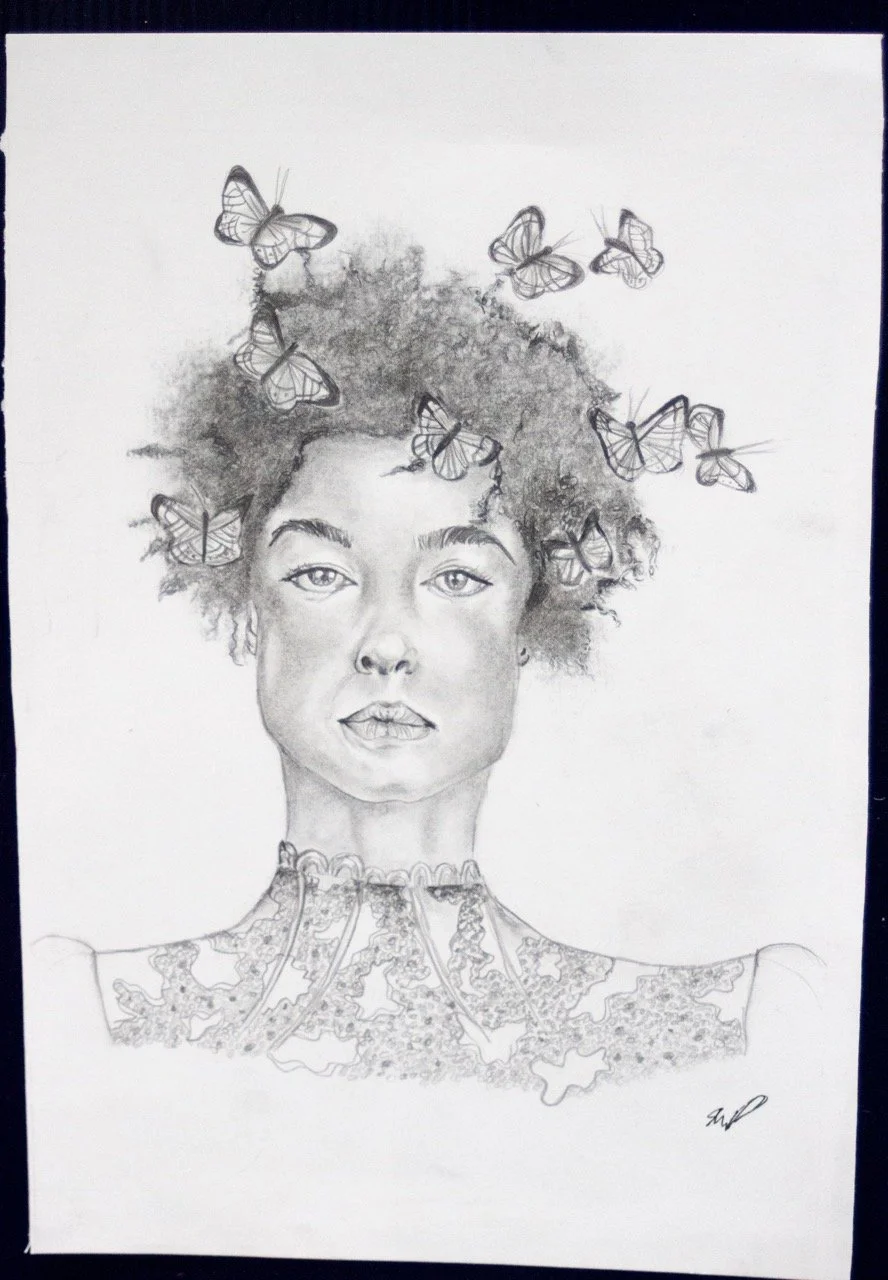Harvest
Butterflies | Sylvia Pittman | Charcoal and graphite
Harvest by Hedda Rejsjo
My uncle is watching the football game. I peek at who’s playing: The Patriots versus the Chiefs! Ironic, but I wouldn’t dare mention it.
My mom and her sister are in the kitchen, bickering over the pies and the turkey and why Catherine’s husband goes on so many work trips. The daughters worry about when it will be their turn.
My littlest boy cousins are outside, despite the freezing cold of November. Their mom tried to get them to put on their coats and looked to her husband for help. He simply stated that she needed to lighten up. She will be the one responsible when they are sick. The kids will love him more.
Finally, the pies and the turkey and the gossip are done. The table is spread with my great-grandmother’s finest plates, possibly her last existing possessions. At least one of them will end up shattered on the floor.
My maternal grandpa sits at the head of the table. This is the first year that the seat to his right will be empty, but you wouldn’t be able to tell by looking at him. He’s hardened since her passing. No, he was always this cold.
My paternal grandpa doesn’t sit at the table. He and my father haven’t spoken in many, many years. I’m not old enough to know what happened, only old enough to feel the tension.
Half the family isn’t religious anymore, but we say grace anyway. It isn’t worth starting a fight this early into dinner. We normally wait until dessert. I hold hands with the cousins I used to hate, and we subconsciously agree to only mouth the word “Amen”.
There isn’t much to be thankful for. The women claim they’re grateful for their spouse and their children, the men say they’re grateful for Home Depot. We laugh, but we shouldn’t. When it’s my turn, I say thanks to my teachers and my friends. This angers my father, I’m sure of it. His own daughter, happy for her liberal teachers feeding her lies and her friends that get her into trouble. I will hear about it later.
After many centuries, Thanksgiving is still a harvest. Mental health is ground up and shoved in the stuffing. Relationships are mashed like the potatoes we serve. The most personal issues are shared at the table, the bread in the baskets.
“Maybe our house next year,” my dad contributes as we say our goodbyes.
“Maybe.”

